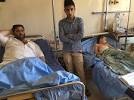Residents of Aleppo neighborhood still feel the pain of war
The sounds of intermittent shelling are a reminder of just how fragile the nationwide truce in Syria is. Syrian authorities gave our crew access to an area that saw some of the worst fighting in the run-up to the cessation of hostilities: Aleppo's southern suburb of Ramouseh.
This is the area where rebels, for a short time, managed to break the government siege of the town's rebel-held eastern districts.
We saw a flurry of activity, with soldiers maneuvering armored personnel carriers and many others standing by. They clearly are not convinced that the calm will last.
"We are sticking to the ceasefire, but the other side is not. That is why I don't think the ceasefire will work," a pro-government fighter who gave his name only as Yassin told me.
And the almost constant sound of gunfire and impacts possibly from mortars or artillery led credence to his skepticism. The rebels, for their part, accuse the government of breaching the ceasefire.
Relieved residents emerge from the rubble
Both sides believe that the other is trying to regroup for a renewed push on this strategic piece of real estate at the entrance to Aleppo.
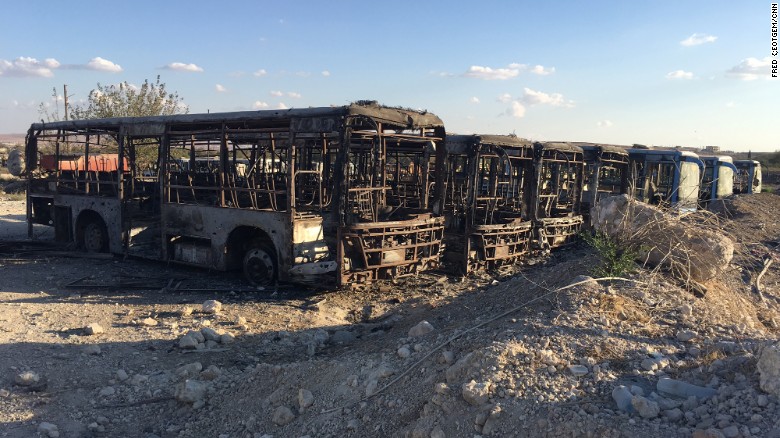
Major destruction at the Ramouseh bus depot.
Several weeks ago, a coalition of rebel forces led mostly by Islamist factions managed to punch through the Syrian army's siege around East Aleppo. The battle raged around the Ramouseh Artillery College, the Air Force Technical College and a cement factory that was used as a base by government forces.
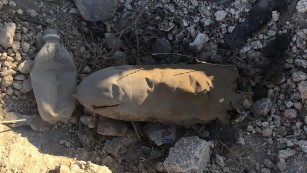
A partially destroyed shell on the former battlefield.
After getting pushed out, the Syrian army received major help from Russian and Syrian air force planes, and eventually managed to regain the territory. The Syrian army allowed us access to part of the artillery college -- badly damaged in the fighting, as are much of the factory and workshop buildings common in this area.
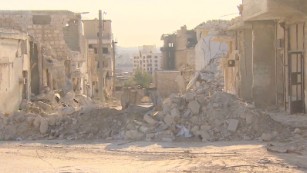
The UN works to deliver aid to Syria
Despite the breaches to the ceasefire, the United Nations says the truce is holding. But many residents of Aleppo remain affected by the fighting that raged here for so long.
We made our way to Razi Hospital, where we say a man and his son laying side by side in two beds, wounded by rebel shelling that happened on the exact day that the ceasefire was announced. Ahmed Jabr and his 7-year-old son Mahmud consider themselves lucky to have survived. Three of Mahmud's brothers were killed in the shelling.
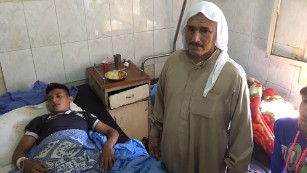
Mahmud Jassim, 16, receives treatment at Aleppo. His father is by his side.
"When the bomb shell fell I went to the ground and I was bleeding. I felt the shrapnel in my body," the young boy said, clearly in pain.
His father said the incident, in which his leg was wounded, made him all but lose faith in the ceasefire.
"Even after the ceasefire started, I was here in the hospital and I saw wounded people still being brought here," Ahmed said.
Among them is 16-year-old Mahmud Yassin. We found him laying in the room next door, with his father by his side. Mahmud told us he was working in the Ramouseh district the day after the ceasefire went into affect when he was wounded.
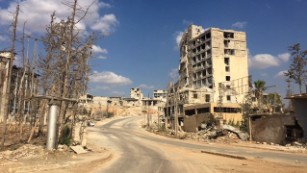
CNN live in Aleppo as ceasefire extended
"I was repairing electrical cables," he said. "That's when snipers fired shots at us. They hit our truck and then I got shot in the leg."
Similar stories have emerged from the rebel-held eastern side of Aleppo as well. The situation is even more dire there because barely any hospitals and doctors are still available to treat patients caught up in the violence.
That's another sign of how badly the current ceasefire is needed, as shaky as it is.
News Courtesy: www.cnn.com

